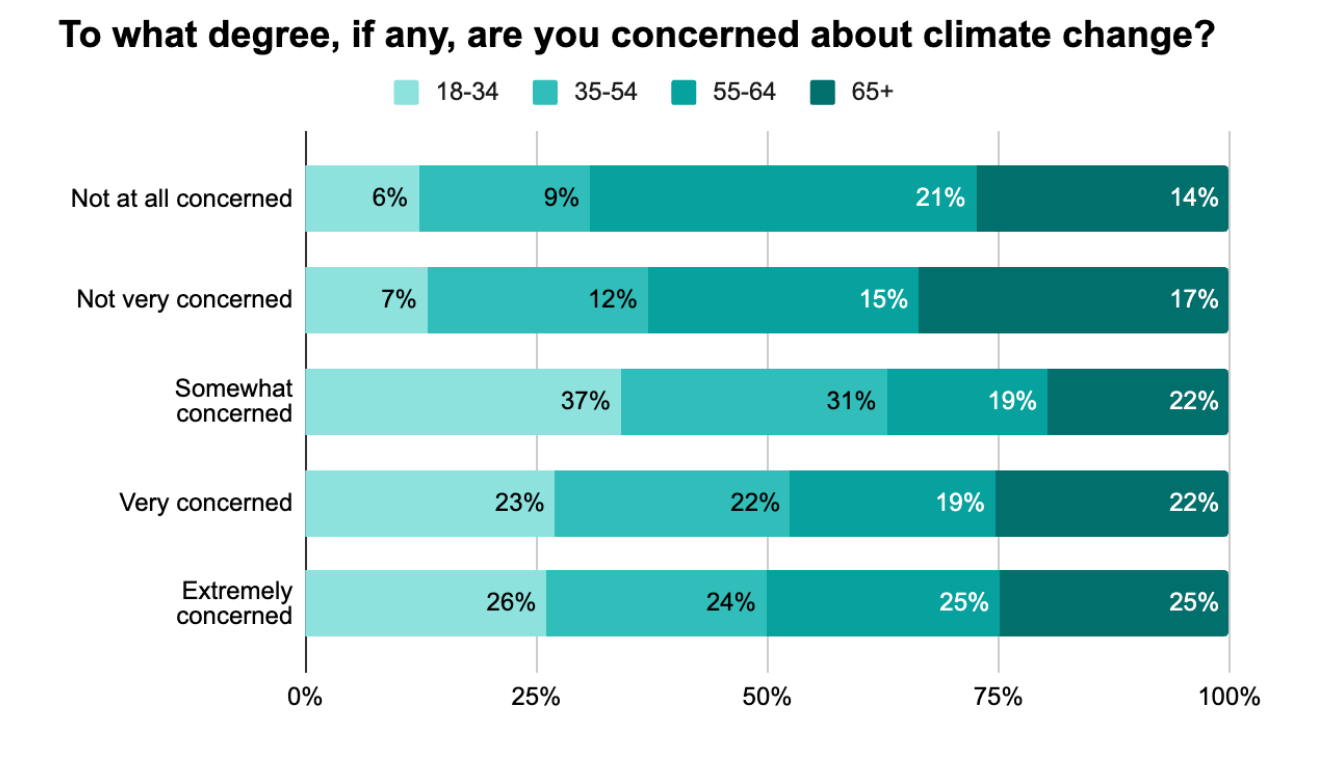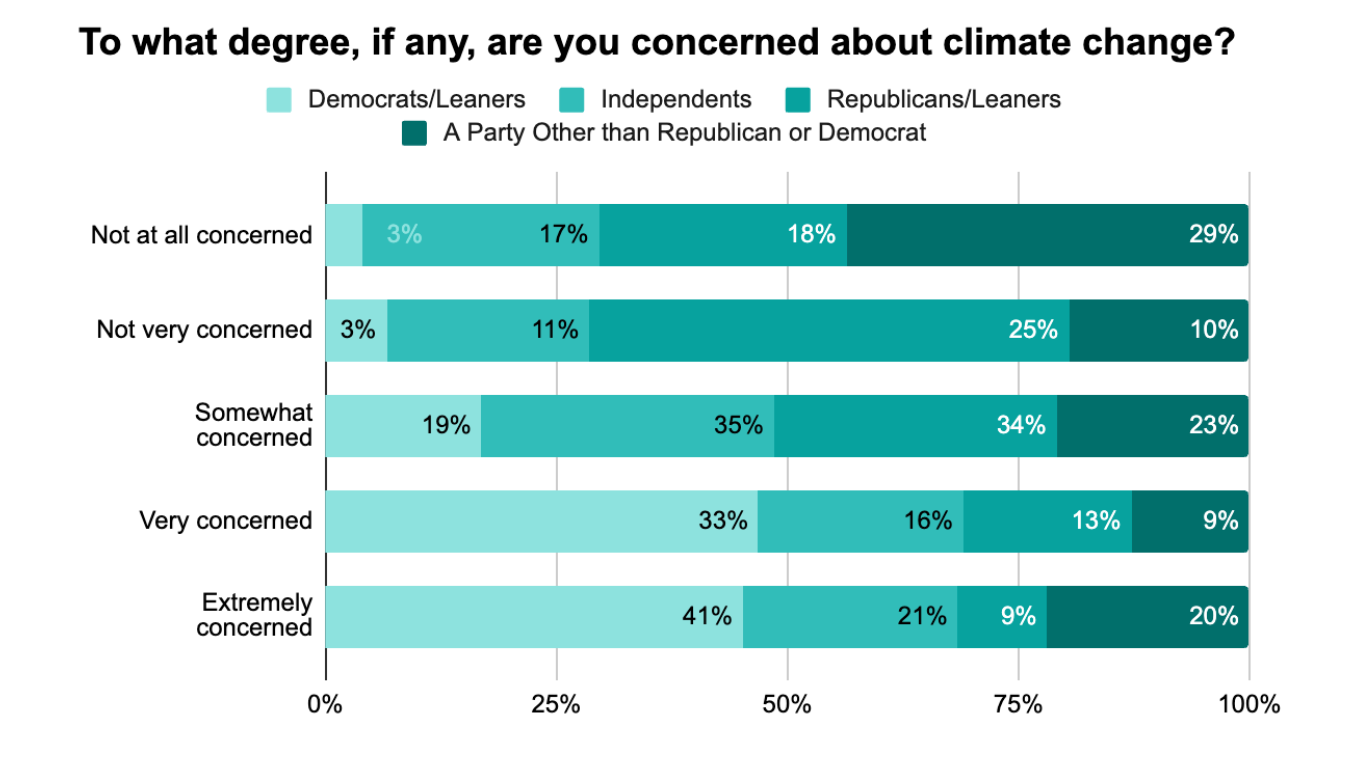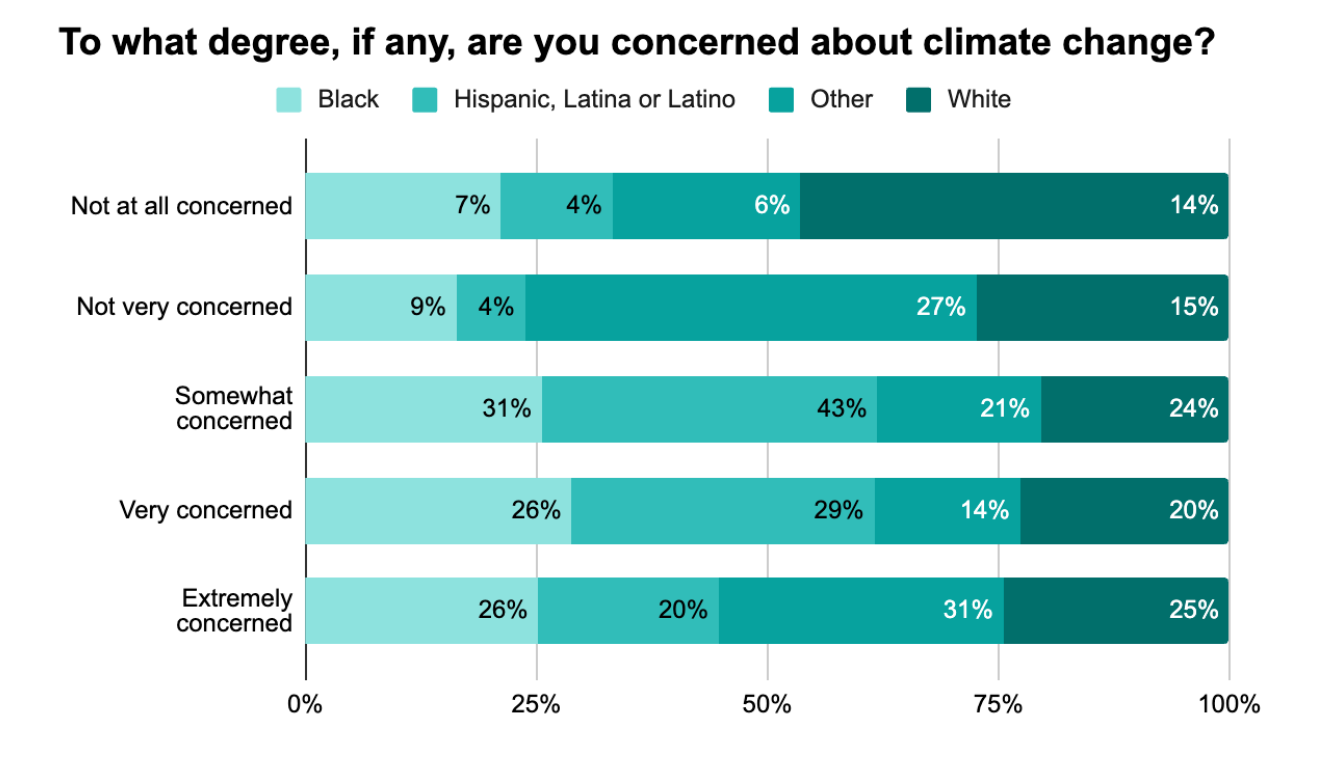Americans’ Climate Concerns: What The Data Shows April 17, 2024
Climate change remains a critical global issue with far-reaching implications for our planet's future. In our most recent nationwide omnibus survey, we sought to gauge the extent of Americans' concerns regarding climate change and their impressions of the response by elected officials.

Younger Voters More Concerned About Climate & Dissatisfied With Government Response
More than 70% of respondents expressed concern about the impacts of climate change, emphasizing the importance of this issue to the public. However, a considerable generational divide was clear, with a higher percentage (87%) of individuals aged 18-34 voicing concern compared to those aged 55-64 (63%).

Despite this being a pressing issue for many Americans, a plurality of voters conveyed dissatisfaction with the response from elected officials, with less than 25% deeming it “just right.” Interestingly, the sentiment that the response from elected officials is “not strong enough” remains consistent across age groups, with an average of 47% of respondents feeling this way.
Cross-Partisan Majority of Americans Are Concerned About Climate
When it comes to partisanship, 93% of Democrats and 56% of Republicans indicated being concerned to some degree. Furthermore, among non-partisan or independent respondents, 72% expressed concern. This shared concern across partisan lines suggests that addressing climate change is universally important and calls for bipartisan cooperation.

Climate Concerns Elevated Among Black and Hispanic Communities
Compared to the national average, Black and Hispanic communities expressed heightened concern about climate change. The Hispanic community proved to be particularly concerned, with 92% expressing some degree of concern, a significant 18 percentage points higher than the national average of 74%. Although their concern levels are elevated, their views on the government’s response are in line with the national average, with nearly half feeling it falls short.

We uncovered similar heightened climate concerns among Black voters in a poll carried out in September 2023 in collaboration with The Brookings Institution, where 88% of Black voters expressed some level of concern about climate change, 10 points higher than the national average. Furthermore, the data suggests a lower level of climate skepticism or denial among Black voters, as only 1% reported being “not at all” concerned, as opposed to the national average of 8%.
Younger, More Diverse Americans More Likely to Take Action
Surprisingly, 43% of respondents acknowledged that they were not taking any action to address the issue, despite the widespread concern.
Perhaps not surprisingly, younger voters are more likely to take action to address climate concerns. Specifically, 64% of respondents aged 18-34 reported taking action, compared to only 30% of those aged between 55-64.
Additionally, Black and Hispanic communities–those most likely to be concerned about climate— are also more likely to take action. For example, Black voters are 13% more likely than the average voter to take action on climate, including (in order) 1) voting for a candidate based on their policies toward climate change; 2) signing or writing a petition related to climate change; and 3) donating money to a political organization, campaign, candidate, or cause focused on climate change. This comes at a time when Black and Hispanic Americans are also more vulnerable to extreme weather events exacerbated by climate change, highlighting the relationship between heightened climate concern and action.
Tracking The Issue
Ongoing survey research is essential to continuously understand and track the evolving attitudes towards climate change, ensuring that policies and initiatives align with the concerns of the American public. Ultimately, further research on the intersection of race and ethnicity with other factors such as political party affiliation and urbanicity can paint a more complete picture of how they influence climate concern.
Our team of expert researchers is adept at crafting customized research programs, offering our partners a unique opportunity to delve into the authentic opinions and attitudes of Americans. If the intricacies of this topic or other societal issues interests you, please engage with us by filling out this form and we’ll be in touch shortly.
Methodology: The survey, conducted as part of our monthly omnibus survey, sampled N = 1,017 registered voters during November 2023. The margin of error is +/- 3.1%, and the results are weighted by Party ID, race, age, and education, ensuring a nationally representative sample.
Share this report
Americans Agree that Polarization is a Significant Threat to Democracy. Could Humanization Be The Antidote?
Citizen Data’s longitudinal research reveals persistent concerns around polarization’s effect on democracy. Americans across the political spectrum are guarded but they’re open to engaging with the other side. Humanization could be the key to overcoming partisan division.
